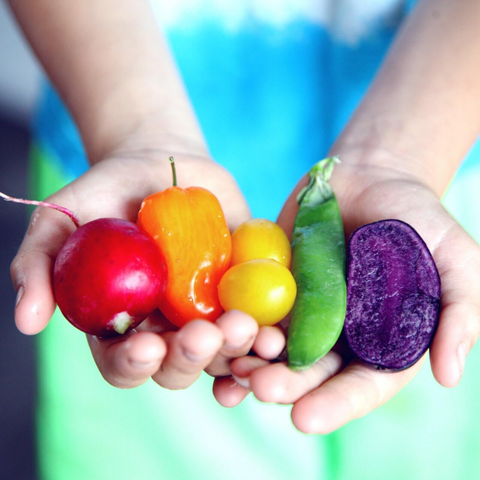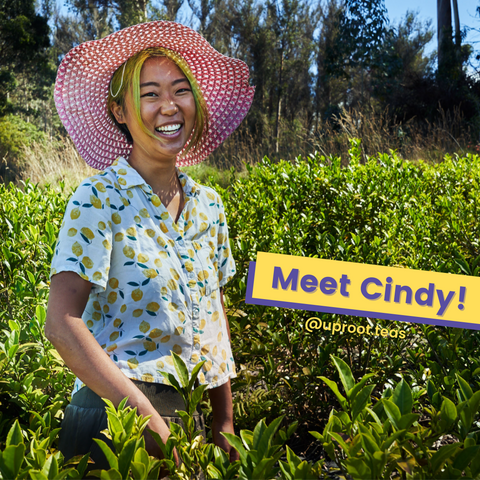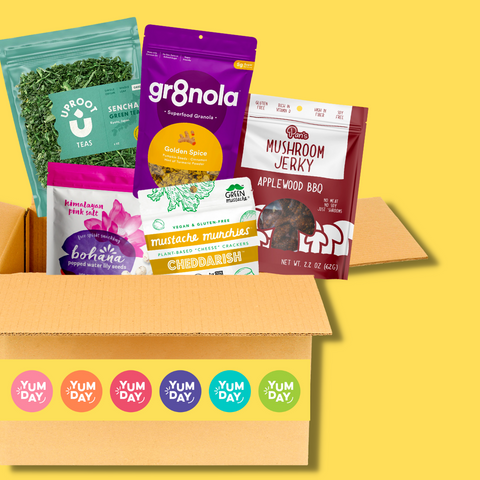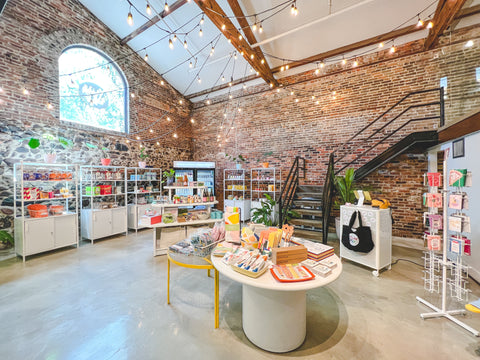According to the Upcycled Food Association, "upcycled food is the easy way for anyone to prevent food waste via the products they buy. Upcycled foods use ingredients that otherwise would not have gone to human consumption, are procured and produced using verifiable supply chains, and have a positive impact on the environment."
In short, upcycled foods prevent food loss, reduce waste, and help mitigate the climate crisis.
Veggies and fruits from juicing are filled with nutrition and can be made into more great tasting recipes.
What is an upcycled food?
Lately, the upcycled food trend has been abuzz in social media and endorsed by many health and environmental enthusiasts. But this philosophy of elevating food resources to their highest and best use (or simply upcycling food) has been around since ancient times.
As you may know, our ancestors have been making broths and soups from bits and pieces of vegetables or meat, and this tradition and its recipes are still widely enjoyed today.
But because of commercialization, many food processes do not incorporate the highest and best use of food resources. Many food products, by-products, and ingredients that companies do not sell in their portfolio are downgraded to animal feed, discarded into incinerators, or dumped into landfills. Examples of these are fresh fruits and vegetables. Many of them are discarded every day just because they are smaller than the company's standard products or are deemed “ugly” for display.
Ironically, even the production of commercial food broths containing bits of vegetables and meat might have caused food waste in one way or another, instead of its traditional intended purpose of providing nourishment, where you utilize all of your available food ingredients to avoid waste.
All these ugly fruits and vegetables, unused by-products, and ingredients are needlessly discarded daily. Together with surplus food from households, grocery stores, supermarkets and the rest of the food industry contribute to this pointless food waste every day.
According to a report from the Food and Agriculture Organization (FAO), an estimated 1.3 billion tonnes of food is wasted globally and costs around $2.6 trillion each year. This tragic waste of resources could have fed all the 815 million hungry people in the world four times over! That’s a lot of food! These valuable resources are not only wasted, but they also are responsible for 6% of global greenhouse gas emissions damaging both humans and our planet.
But the saddest part is that every day, people like you and me have the ability to vote with our dollars to end this food waste, prevent hunger, and avert environmental damage.
Ways to reduce food waste
There are a lot of ways we can contribute. Many people are now into sustainably growing their own food and creating an environment where food waste is turned into compost to regenerate the earth. Consuming lab-grown meat and choosing to have more fruits and vegetables instead of meat or practicing veganism could also help.
There are also mobile apps made by concerned organizations which help manage individual and private food waste. They connect people to organizations and companies that can take your surplus food from households or buy unsold food from restaurants, grocery stores, and supermarkets.
Check out these innovative mobile apps that will help you fight food waste and probably save you money by reducing unnecessary purchases that could lead to food waste.
Food Rescue US. This web-based app engages volunteers to transfer fresh food surpluses from local business to social service agencies serving the food insecure. According to their website, their effort has saved 113 million tons of food from going to waste and dumped into landfill and provided 88 million meals to those in need.
Olio. Helps you save food, meet a neighbor and feel like a hero. This free app lets you take a photo of your surplus food and share it in the community so you can help out neighbors in need, fight food waste and save the planet. Per their website, their app members have shared more than 43 million portions of food and saved more than 6 billion liters of water.
No Waste. This app lets you easily track, organize and manage the food in your home. You’ll get to organize your food, track expiration dates with ease and monitor your monthly food supply. This app is helpful if you want to save a money and avoid unnecessary purchases that lead to food waste.
But we can only do so much in our private households. Most of the food waste that has a significant impact on the environment comes from big food companies and corporations. And much of the waste comes from the food production process and practices they have had in place for a very long time and often refuse to change.
Even if we try to consume more fruits and vegetables or practice veganism, the process that brought that food to your table could have also meant discarding thousands of "ugly" products. Even the consumption of simple food products like juice, chocolate, and beer contributes to tons of discarded perfectly usable food ingredients.
Do you love cold-press juice, chocolates, and beer?
Here are some quick stats about how the traditional process that brought them to your table contributes to food waste.
Let's start with a cold-pressed juice and make the process simpler for a homemade routine.
As you may know, many influencers attest to celery’s excellent detoxifying properties for your skin. Celery juice may help reduce your migraine in addition to many other powerful benefits.
The usual recipe or process would be to blend the fresh celery stalks and strain out the pulp to get your healthy detox juice. Or, if you're more in the mood to party, you could mix the celery juice with gin to give it a little more kick. (Lol!) Either way, the pulp fibers get separated from the mix. And if you're the type who loves cooking, this celery pulp can be used to make a tasty broth for lunch or dinner.
This process of turning celery stalks into juice and a broth ingredient would be ideal, but most people don't have time to make broths for lunch or dinner. In most houses, celery pulp would simply be tossed out.
Now, imagine the celery juice-making process on a large scale. Where does all the celery pulp go to make that bottled cold-press juice in your grocery store? Unfortunately, they end up in landfills, left to rot and create greenhouse gas emissions.
But we just can't cancel all these companies. They make food accessible, especially if you're always on the go and need nourishment on the fly.
Fortunately, making upcycled food products is becoming a trend. After all, the term "upcycled" means creating a product of higher quality or value than the original. The upcycled food movement has also prompted many budding companies and start-ups to employ sustainable food systems in their production. These new companies and start-ups are forcing large food corporations to reexamine their production practices and apply upcycling methodologies.
Where can you buy upcycled foods?
Below, we've collected some notable independent startups that bridge the gap in the food system by producing innovative, nutritious and great tasting snacks. Take a gander!
The Ugly Co. This dried fruit company partners with local grocers to take these "ugly" and "would-have-been" thrown away fruits into unaltered dried fruit. True to its mission of making delicious and sustainable snacks, they do not add any chemicals such as sulfur to their products. They offer guilt-free and various delicious dried and diced fruits like peaches, nectarines, apricots, and kiwis. The Ugly Company takes pride in its esteemed name and also sells custom t-shirts and clothing, which helps spread the upcycled food movement.
Real Food Bar. This gluten-free protein & vegan bar, is another brand making a stand with upcycled food. Each bar is filled with nutrients, antioxidants, and soluble prebiotics for easier digestion and muscle recovery. These non-GMO protein bars are slow-dried and extract the nutrients from imperfect produce to create these veggie powders. The final product is the nourishing and delicious veggie bars you can take on the go. Real Food Bars are not only nutrient-rich and save the environment, they also offer various health benefits. For example, the polyphenols from cherries can reduce muscle fatigue and support anti-inflammatory responses in your body.
Renewal Mill. The snack company combines the nutty flavor with their oat milk flour to create these crispy and delicious chocolate chip cookies. Standing in their proud belief of fighting against climate change and global food loss, Renewal Mill hopes to "create a new circular economy of food that closes the loop in today's current supply chains." The company harvests the by-products of plant-based milk production in pulps, such as almond, soybean, or oat, and then dries and mills these pulps into fine powder to be packaged for cooking and baking purposes. Renewal Mill offers various flavors such as Oat Chocolate Chip Cookie, Sugar Cookie, and Matcha Chip Cookie.
ReGrained. This company is known for its upcycled and nutritious puffed snacks. The homebrewers take the flavorful and fragrant spent grain from the beer brewing process and upcycle the flavor and nutrition to create their patented "SuperGrain+" low-carb powder. Packed with prebiotics and polyphenols, the Regained SuperGrain+ has 3.5x fiber and 2x more protein than traditional wheat flour. You can choose from a select options of strozzapreti pasta, puffs that offer various flavors such as urban garden and Texas pit bbq, and bars in the forms of chocolate coffee or honey cinnamon.
Pulp Pantry. This veggie chip company takes pride in their upcycled food mission. They essentially take the fresh vegetable juice pulp that would have gone to waste, and create these nutritious and sustainable vegetable chips. Pulp pantry actively saves 38 gallons of water by using every single pound of vegetable pulp there is available to make these delicious chips, which come in flavors such as salt and vinegar, jalapeño lime, barbecue, and sea salt.
Seconds. This new company teams up with the finest juice and produce companies to upcycle their nutritious pulp and peels into crave-worthy crackers. Seconds leave no carrots behind, and they’re on a mission to reimagine snacking where all food reaches its highest and best use. Their current products include savory and very addictive crackers from carrots, that’s all about giving your body the fuel it needs without depleting Mother Nature’s own.
These are just some of the budding independent snack brands making waves in the industry and taking part in the upcycled food movement.
We don't have to wait until election day to vote for changes in the food cycle either. We can make conscious decisions with every purchase.
The Upcycled Food Association suggests consumers purchase products and spend their money to align with their values, and Yumday is all about it!
We here at Yumday support these emerging and independent food companies that promote sustainability and produce delicious upcycled snacks that are good for you and the planet. We specially curate and promote upcycled and sustainable snacks for our conscious buyers who love great tasting food that nourishes you and helps heal the planet.
Want to try some of the brands we mentioned above? Grab our Upcycled + Sustainable Curated Snack Box today! Also, be sure to follow us on Instagram and Facebook for updates on the new upcycled snacks we're adding to our shop.
By Johna Tanawan, Justine Triunfo, and Kasey Woo









Comments (0)
There are no comments for this article. Be the first one to leave a message!